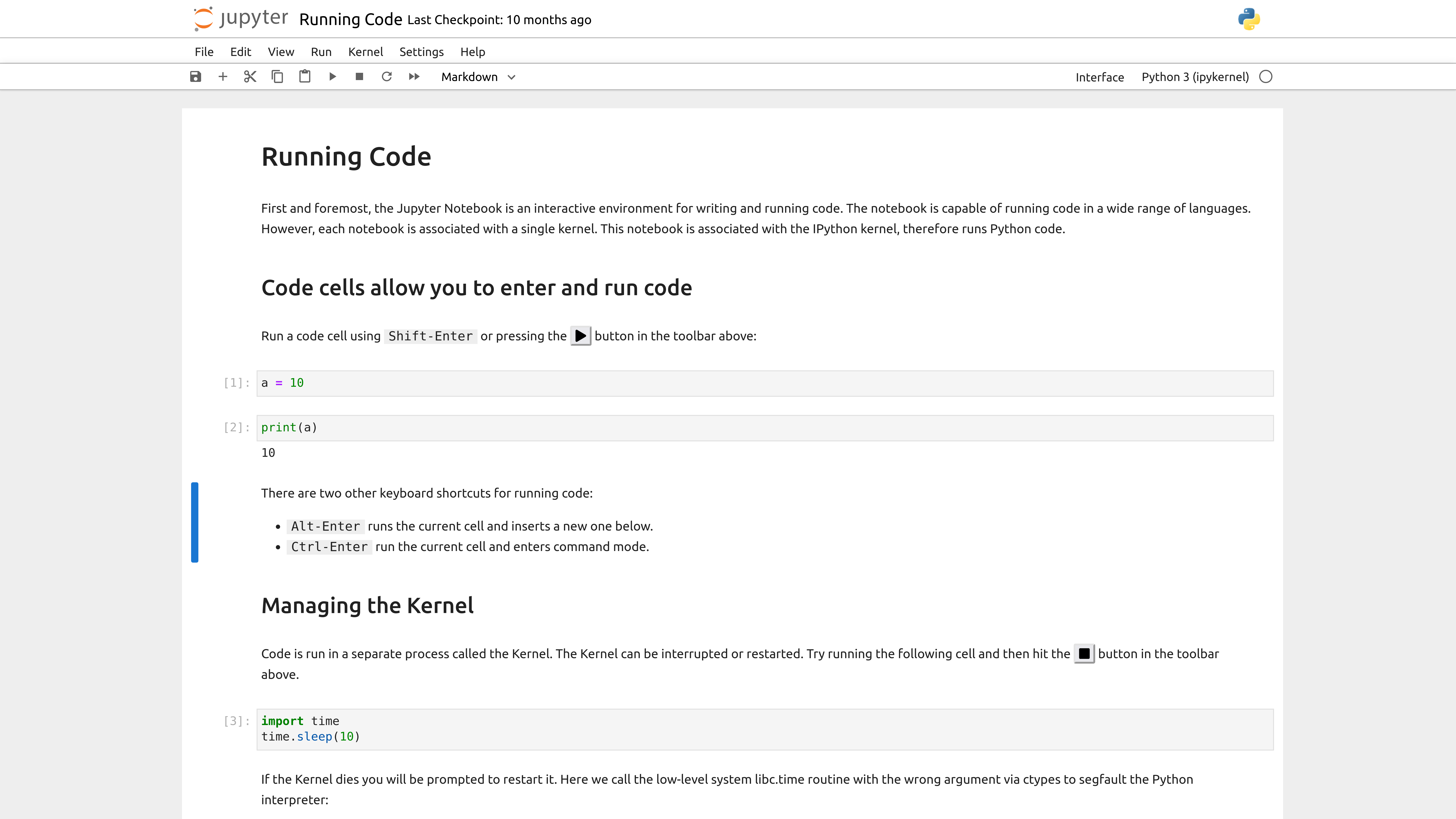SHA256 hashes: jupyter-notebook-application-7.0.0-alpha.16.tgz: 3c0036866fa97d0333a108891b90455528524033adf44a883b52d3a74c43bcf9 jupyter-notebook-application-extension-7.0.0-alpha.16.tgz: f4fdc2643b46a3dea6473686f930e90a810fc07d7afec1c6236f8536464bfa9f jupyter-notebook-console-extension-7.0.0-alpha.16.tgz: 94e7c908a10ea4fdb0ac080f3c77d40c7ff7fe8fcfd8f308b3d252b4dcc78bbd jupyter-notebook-docmanager-extension-7.0.0-alpha.16.tgz: 1c05fef8c30ff0792e170a6f580dc81daaae20b69a20c0009dba3a17cd853b6c jupyter-notebook-documentsearch-extension-7.0.0-alpha.16.tgz: c0516c5963d6931b34856d792478ab92e54d34af006b0a7d3f7cc361f2221de6 jupyter-notebook-help-extension-7.0.0-alpha.16.tgz: 61e16f847b7fd945bd4238954ff04182a1212e9cfe6c652976eeafe79de754b3 jupyter-notebook-lab-extension-7.0.0-alpha.16.tgz: 1613bf67261199a28c398256cc6b289b01d7030ac8457c2c8909a95a1576d483 jupyter-notebook-notebook-extension-7.0.0-alpha.16.tgz: 37e0da2d66fc5175c156238bdaacb5a6cddad249c4a29270b1e6af2b35ba8154 jupyter-notebook-terminal-extension-7.0.0-alpha.16.tgz: 2021b797d46022fa4bc23d102d41187e8364948d3c46d435d4546f2f3c0f52e8 jupyter-notebook-tree-7.0.0-alpha.16.tgz: c1efa011377f44dccc30e346774fca6e9b0e921b62ac1ca0e134878320c699e7 jupyter-notebook-tree-extension-7.0.0-alpha.16.tgz: a1c6156e5ae4b4ce1448101c29e907359fcf95957f0f2330dcb04a16f1fe61c9 jupyter-notebook-ui-components-7.0.0-alpha.16.tgz: 66556229af90222d7fa431f998462c7313c735235fdbc669ce262010446d36a4 notebook-7.0.0a16-py3-none-any.whl: c86681ec17cb9ae7e34d9b23f39613704b17074f9bf8c9a086d01135ee76a8c9 notebook-7.0.0a16.tar.gz: 4f7cfc66d55c1ce84759bee0183e15352113c00503925cee351b27c7335d7fae |
||
|---|---|---|
| .github | ||
| app | ||
| binder | ||
| buildutils | ||
| docs | ||
| jupyter-config/jupyter_server_config.d | ||
| notebook | ||
| packages | ||
| tests | ||
| ui-tests | ||
| .eslintignore | ||
| .eslintrc.js | ||
| .eslintrc.json | ||
| .git-blame-ignore-revs | ||
| .gitignore | ||
| .gitpod.yml | ||
| .pre-commit-config.yaml | ||
| .prettierignore | ||
| .prettierrc | ||
| .readthedocs.yaml | ||
| CHANGELOG.md | ||
| codecov.yml | ||
| CONTRIBUTING.md | ||
| jupyter_config.json | ||
| jupyter-notebook.desktop | ||
| jupyter.svg | ||
| lerna.json | ||
| LICENSE | ||
| notebook.svg | ||
| package.json | ||
| pyproject.toml | ||
| README.md | ||
| RELEASE.md | ||
| setup.py | ||
| tsconfig.eslint.json | ||
| tsconfigbase.json | ||
| tsconfigbase.test.json | ||
| yarn.lock | ||
Jupyter Notebook
The Jupyter notebook is a web-based notebook environment for interactive computing.
Maintained versions
We maintain the two most recently released major versions of Jupyter Notebook, Notebook v5 and Classic Notebook v6. After Notebook v7.0 is released, we will no longer maintain Notebook v5. All Notebook v5 users are strongly advised to upgrade to Classic Notebook v6 as soon as possible.
The Jupyter Notebook project is currently undertaking a transition to a more modern code base built from the ground-up using JupyterLab components and extensions.
There is new stream of work which was submitted and then accepted as a Jupyter Enhancement Proposal (JEP) as part of the next version (v7): https://jupyter.org/enhancement-proposals/79-notebook-v7/notebook-v7.html
There is also a plan to continue maintaining Notebook v6 with bug and security fixes only, to ease the transition to Notebook v7: https://github.com/jupyter/notebook-team-compass/issues/5#issuecomment-1085254000
Notebook v7
The next major version of Notebook will be based on:
- JupyterLab components for the frontend
- Jupyter Server for the Python server
This represents a significant change to the jupyter/notebook code base.
To learn more about Notebook v7: https://jupyter.org/enhancement-proposals/79-notebook-v7/notebook-v7.html
Classic Notebook v6
Maintainance and security-related issues are now being addressed in the 6.4.x branch.
A 6.5.x branch will be soon created and will depend on nbclassic for the HTML/JavaScript/CSS assets.
New features and continuous improvement is now focused on Notebook v7 (see section above).
If you have an open pull request with a new feature or if you were planning to open one, we encourage switching over to the Jupyter Server and JupyterLab architecture, and distribute it as a server extension and / or JupyterLab prebuilt extension. That way your new feature will also be compatible with the new Notebook v7.
Jupyter notebook, the language-agnostic evolution of IPython notebook
Jupyter notebook is a language-agnostic HTML notebook application for Project Jupyter. In 2015, Jupyter notebook was released as a part of The Big Split™ of the IPython codebase. IPython 3 was the last major monolithic release containing both language-agnostic code, such as the IPython notebook, and language specific code, such as the IPython kernel for Python. As computing spans across many languages, Project Jupyter will continue to develop the language-agnostic Jupyter notebook in this repo and with the help of the community develop language specific kernels which are found in their own discrete repos.
Installation
You can find the installation documentation for the Jupyter platform, on ReadTheDocs. The documentation for advanced usage of Jupyter notebook can be found here.
For a local installation, make sure you have pip installed and run:
pip install notebook
Usage - Running Jupyter notebook
Running in a local installation
Launch with:
jupyter notebook
Running in a remote installation
You need some configuration before starting Jupyter notebook remotely. See Running a notebook server.
Development Installation
See CONTRIBUTING.md for how to set up a local development installation.
Contributing
If you are interested in contributing to the project, see CONTRIBUTING.md.
Community Guidelines and Code of Conduct
This repository is a Jupyter project and follows the Jupyter Community Guides and Code of Conduct.
Resources
- Project Jupyter website
- Online Demo at jupyter.org/try
- Documentation for Jupyter notebook
- Korean Version of Installation
- Documentation for Project Jupyter [PDF]
- Issues
- Technical support - Jupyter Google Group
About the Jupyter Development Team
The Jupyter Development Team is the set of all contributors to the Jupyter project. This includes all of the Jupyter subprojects.
The core team that coordinates development on GitHub can be found here: https://github.com/jupyter/.
Our Copyright Policy
Jupyter uses a shared copyright model. Each contributor maintains copyright over their contributions to Jupyter. But, it is important to note that these contributions are typically only changes to the repositories. Thus, the Jupyter source code, in its entirety is not the copyright of any single person or institution. Instead, it is the collective copyright of the entire Jupyter Development Team. If individual contributors want to maintain a record of what changes/contributions they have specific copyright on, they should indicate their copyright in the commit message of the change, when they commit the change to one of the Jupyter repositories.
With this in mind, the following banner should be used in any source code file to indicate the copyright and license terms:
# Copyright (c) Jupyter Development Team.
# Distributed under the terms of the Modified BSD License.

